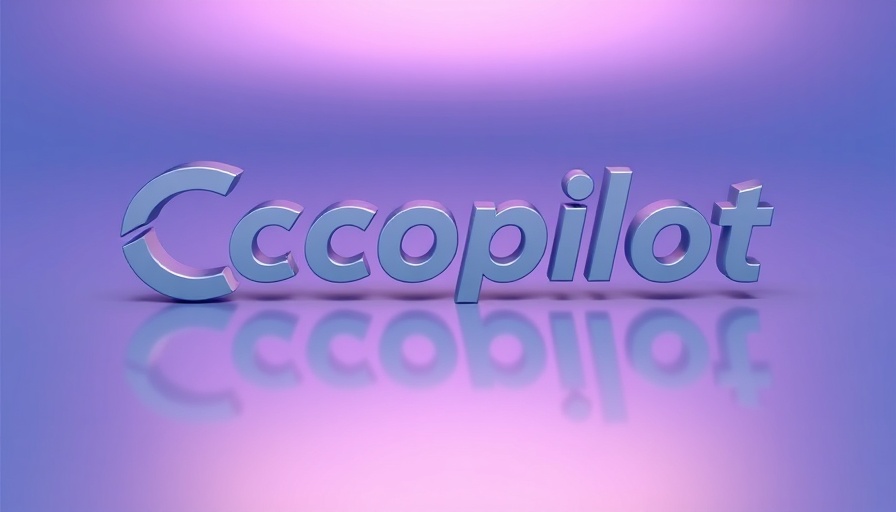
Why Some Windows 11 Users Are Celebrating the Copilot Bug
In a twist of irony, the latest Windows 11 update has inadvertently brought relief to users who are wary of Microsoft's new Copilot assistant. Launched under the update KB5053598, this patch has caused the AI app to be "uninstalled and unpinned from the taskbar" on select PCs. Microsoft has acknowledged this issue, noting it is working diligently to rectify it. As a consequence, those who prefer not to engage with the AI assistant find themselves in a fortunate predicament as the Copilot feature is temporarily unavailable.
Understanding the Patch That Caused the Stir
This official Windows update, rolled out on March 11, 2025, as part of Patch Tuesday, serves primarily as a security fix applicable to all Windows 11 version 24H2 editions. Between managing system security and improving stability, updates like this one sometimes yield unexpected outcomes. Microsoft issued a statement addressing the bug, emphasizing the importance of user feedback in refining their products. Users can anticipate a resolution soon, but for now, those who find AI integration superfluous are enjoying a glitch-induced break.
A Look at Microsoft's Larger Strategy with AI
The Copilot app's evolution has sparked debate around AI integration in everyday tools. With its recent iterations, including a press-to-talk feature set for expansion, Microsoft aims to join the ranks of companies like OpenAI in delivering advanced AI functionalities. However, these advancements aren't universally welcomed; many Windows users remain skeptical of AI's efficacy and privacy implications. The current situation underscores a demand for clarity from Microsoft about its AI offerings, especially following its history of rolling out untested features.
Beyond the Bugs: Embracing AI in Everyday Life
Despite the controversy surrounding Copilot, it's essential to consider why AI features resonate with many users. Artificial intelligence can improve personal productivity, streamline workflows, and automate mundane tasks. Microsoft intends to enhance the user experience with more intuitive interfaces, better interaction methods, and personalized features. As AI continues to infiltrate various domains, overlooking its potential advantages could leave users at a significant disadvantage. Those uncomfortable with the current state of AI tools like Copilot have the opportunity to voice their concerns as these technologies evolve.
What the Future Holds for Microsoft’s AI Assistant
As Microsoft gears up for an announcement regarding Copilot's future at a special event on April 4, enthusiasts and critics alike should prepare for possible changes. There's speculation that Microsoft will unveil new features, contextual enhancements, and improved stability for the application. Given that Copilot serves as a bridge between productivity and artificial intelligence, how the tech giant addresses the current issue may set the tone for user expectations going forward.
Implications for IT Administrators Using Citrix
It's also crucial to mention that the recent update poses specific challenges for IT administrators utilizing Citrix software. Microsoft cautioned that certain components, particularly from the Citrix Session Recording Agent, could hinder successful installations of critical Windows updates. The intersection of AI functionalities and enterprise applications complicates the user experience but reveals the necessity of robust coordination between software vendors and updates.
A Perspective on User Sentiment
The true test of Microsoft's strategy lies in its response to feedback. Users are encouraged to express their opinions about AI features, whether through direct messaging or community forums. Engaging with these discussions enables Microsoft to fine-tune its software to better suit user preferences and enhance overall satisfaction. As the landscape of AI evolves, continued dialogue will be essential for driving successful integration.
Affected users can easily install the Copilot app again from the Microsoft Store, demonstrating both the ease of access to Microsoft software and the complexities of maintaining user satisfaction amid evolving technology. While the short-term outlook regarding Copilot remains uncertain, it offers valuable insights into users' evolving expectations from AI tools and the need for companies to continually adapt.
As we navigate these updates and explore our relationship with technology, it’s time to reflect on how we engage with AI. Are we willing to embrace utility, or do we prefer to live without these digital companions? Your opinion matters, and sharing it could impact the next phase of technological integration.
 Add Row
Add Row  Add
Add 




 Add Row
Add Row  Add
Add 

Write A Comment